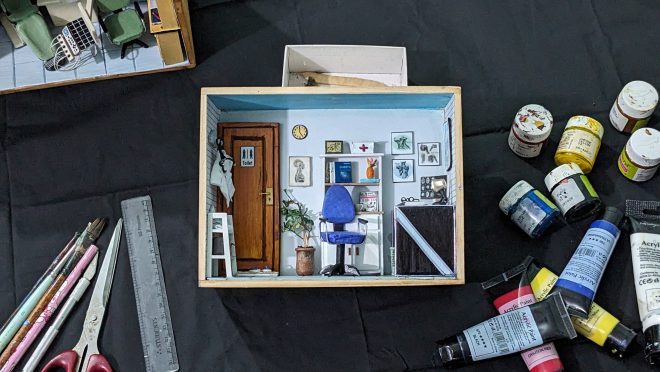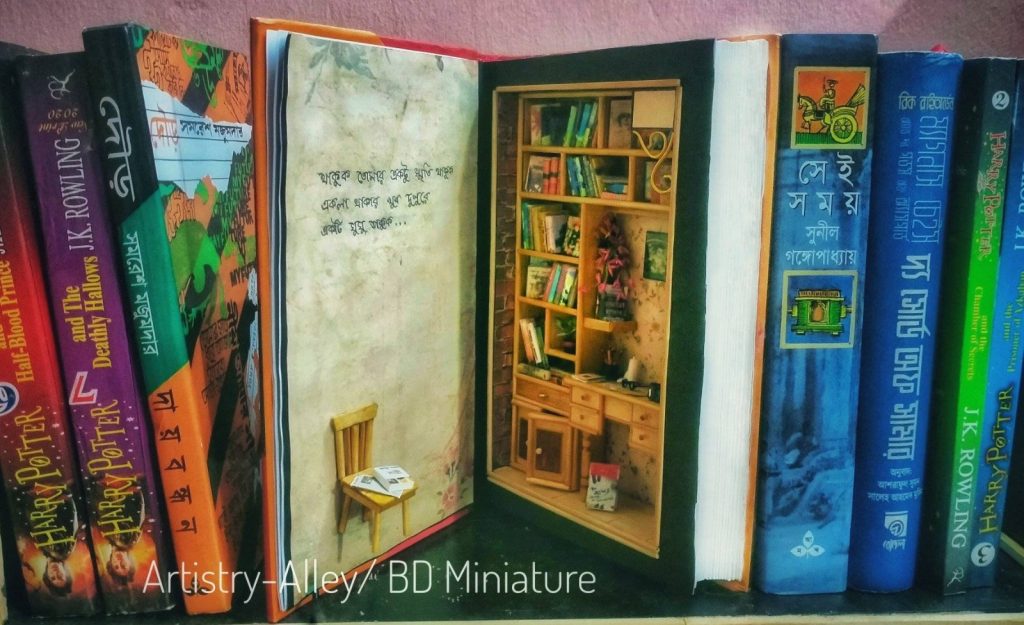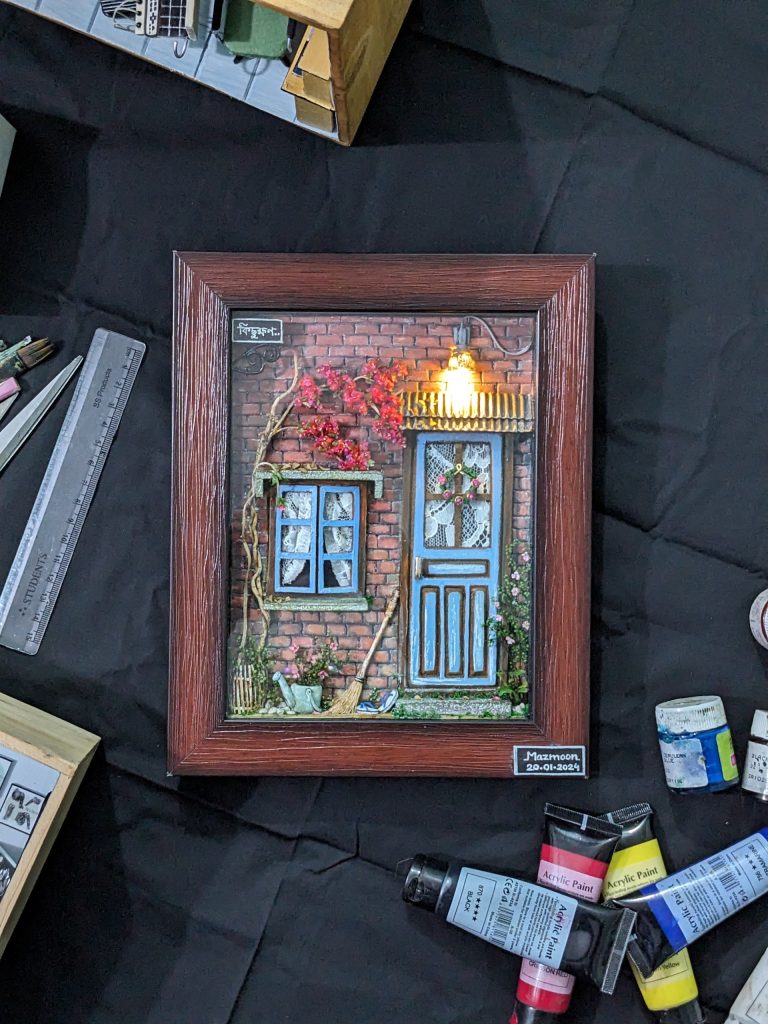How Artistry Alley captures the intricacies of crafting miniature models
How Artistry Alley captures the intricacies of crafting miniature models

A touch of nostalgia is what makes a thought-out present a memorable gift. It can be excerpts or mundane objects of the past and is often framed in polaroids. What if there were a service that frames that nostalgia down to every minute detail as visualised? The online business Artistry Alley: BD Miniatures does just that. Based in Narayanganj, they make custom miniature models of furniture, rooms, and landscapes, capturing awe-inspiring detail. Starting out during the pandemic, the business was also the product of wistful nostalgia.
Maliha Mazmoon, the artisan, shared how Artistry Alley came to be. Her younger brother, who first started it as a passion project, made his first miniature during the lockdown. She lent a hand in the project and discovered her own latent passion for the craft. Since her brother could not keep up with the growing clientele due to his academics, she pondered utilising her passion to take it as a profession. The first attempt was to emulate a classroom – the university classroom that she studied in and missed during the lockdown. After collecting the material and figuring out how to cut wood using hex blades, she gradually started giving it life. As it slowly started taking form, her mind sparked with euphoria, helping her get over the depression of those troubled times.

The next step was to open a Facebook page to showcase her work, which garnered praise from both local appreciators and international miniaturists when shared in the respective communities. Requests of a variety of room boxes started flooding in. The clients started sharing their visions and dream projects. “Taking their imagination and matching it with mine to transform it into reality is the hardest part of the creative process,” she remarked,
“Thus the tagline of the page – let your dreams taste reality!”
The most interesting project she worked on, other than the very first classroom, was a dentist’s chamber. She was sceptical about it at first, since the furniture in a dentist’s chamber is considerably different. But she mustered up the courage and took on the challenge. When she finally completed the project and posted on the page, requests started coming in from dentists of foreign countries. She could not, however, take those orders owing to shipment complications.
Another time, a client shared with Maliha her vision of a dream library room. Since it was an idealised image inside her mind, she could not provide a reference image and thus drew a map of the room. It was especially challenging for Maliha to turn those scribbles into something tasteful. In the end, Maliha too was surprised with how well it turned out. She expressed her gratitude to the client for the order as it was rewarding for her as well.
Maliha loved decorating the rooms as a child. She encapsulates that love for the organisation in her miniatures as well. When a customer does not have the means to put together their own dream room, they ask her to make a miniature of it. She finds it cathartic to work on such projects.

In terms of materials, she collects them from all around in nature – like dried leaves or flowers. Sometimes unused items lying around the house come in handy. “There was this one time I bought a Kamini flower plant but it died suddenly,” she chuckled, “So I put it on the terrace to dry in the sun and then used the wood in a number of projects that required miniature plants.”
When ordering, especially as a gift for someone, clients should take into account the time. A small project may take 2 weeks. But depending on the detailing, a larger project can take upward of a month. Maliha encourages her clients to order at least a couple months in advance.
Maliha expressed her desire to craft a miniature of a historical landmark of our country – her personal favourite Panam City. She visualises it in the form of a book-nook, with books on both sides and a Panam City alley in the space in between. She also wishes to organise an exhibition of her artworks, given the time and opportunity. As for the art from the perspective of Bangladesh, she hopes to see “miniaturist” as a popular term someday, getting recognition as a distinct form of art. She added, “I want the materials – the unavailability of which holds us back from making the craft more detailed – to be easily accessible in our market.”


